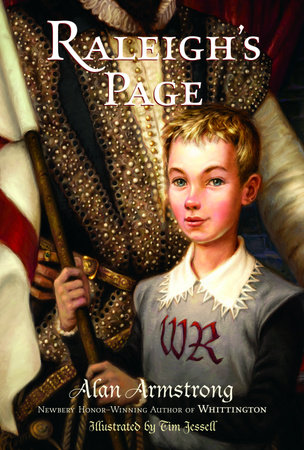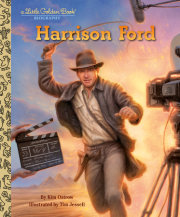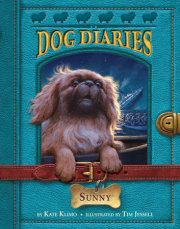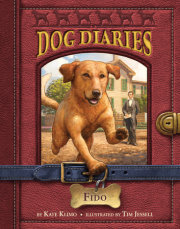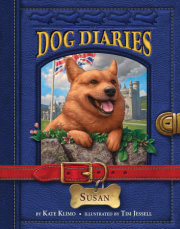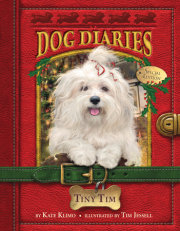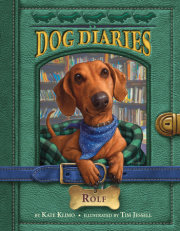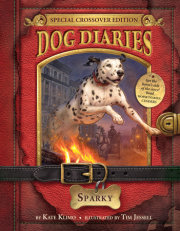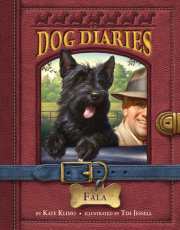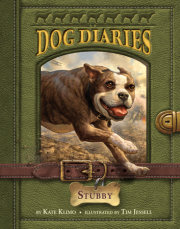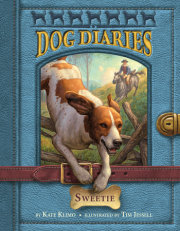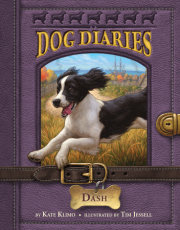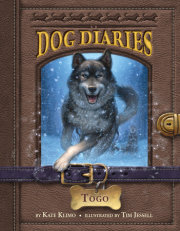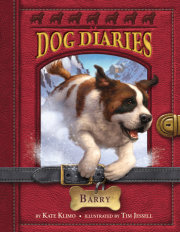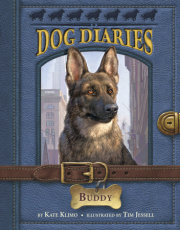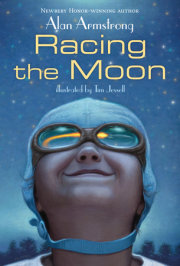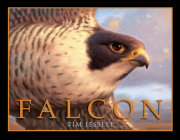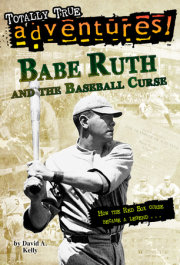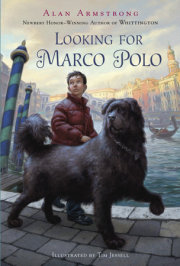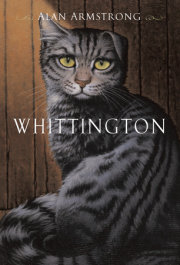1
Winding the Spring
Stillwell Farm, Devon, 8 April 1584
Mr. Raleigh--
As you've heard, Andrew will be twelve next birthday. He is strong, healthy, tall for his age, steady. He has good teeth. He can read and speak English, Latin and French. He knows numbers and writes a fair hand. He finishes school this spring.
If you accept him for service, according to custom you will feed him at your own table and furnish him with the habiliments of a gentleman. He will be trained to ride, fight, hawk, and conduct himself according to the fashion. On his sixteenth birthday you will make him a gift of L4 in gold and the clothing, books, instruments, and items of daily use then in his possession.
I will deliver him to Durham House this month end.
Regards from your friend,
John Saintleger
Andrew was eleven, tall for his age, hair like wheat stubble, hazel eyes, big front teeth he'd not yet grown in to. His smile was eager and unafraid. He was wiry from farm work and managing horses. Helping his father build and repair around the farm, he'd learned carpentry. He liked the tools his father had taught him to use, their shapes and edges, what he could do with them. He and the brother who'd been sent to Bristol had built a tree house together, a fort they'd slept in sometimes and stood off neighbor boys' attacks with acorns and rotten fruit. Andrew had thought he might end up a carpenter.
Then came the night his father asked him to hold up clearing the table after dinner.
"You and I are going up to London together as soon as you finish school," he said raising his eyebrows and beginning a smile. "Listen"-- and he read aloud his letter.
Until that moment Andrew had no idea of his father's plan. His heart raced as he listened. An introduction to Walter Raleigh was the most valuable gift his father could make this son. Raleigh was a star at court! Andrew's teacher, Mr. Tremayne, said Mr. Raleigh was for America, exploring, finding gold, and settling English people in the New World!
Standing before his map day after day, arms waving, dark hair flying, his voice urgent, Teacher Tremayne had wound the New World spring in his boys, calling them to name rivers, winds, sea-lanes and islands. He'd drilled them so often they could draw that map in their sleep. Their nickname for him was "Maps". He was only a few years older, sent down from Cambridge without graduating because of some prank.
Andrew and the others had sat quivering like a pack of eager dogs panting to go for the game their teacher hunted as Tremayne jabbed his map, a fine spray of his spit caught in the sunlight as he exclaimed, "There boys! There sits America, waiting for you!"
Tremayne held out his open hands as if making a gift. "At college we read Richard Eden's Travels," he said. "He called the New World Eden: Gold, pearls, deep soils, trees taller than steeples and almost as large around, men's coats made of yellow and blue feathers, healing plants, furs, crops of corn they get with little effort.
"And this boys!" he whispered. "No landlords fattening on us with their rents, rules, and leases; no sheriffs snatching up fees and fines; no church you must attend, no priest to pay!"
"He could get in trouble if Mr. High Sheriff heard him talk like that," Andrew's desk mate whispered. "Aye," he replied, "but in America there's no High Sheriff. It's all free and open!"
"And there's gold!" his neighbor said with a nudge. "That's what I'd go for!"
The boy's whole name was Andrew Saintleger. "Salinger" is how they say it in Devon. He was the youngest, so he'd inherit nothing: the farm with its leases and debts would go to his oldest brother. His father could have put him to anything. His middle brother had been sent to clerk for a childless soap-maker at Bristol--future enough for him, but Andrew's father knew this son wanted a chance to make his fortune in the New World.
On the last day of school the students stood in line to say goodbye to their teacher. When it came Andrew's turn Master Tremayne put both hands on the boy's shoulders. Andrew's jaw trembled. He loved this man.
"You're off to London to be page to Walter Raleigh!"
"If he keeps me," Andrew whispered, his eyes wide.
"Do your best and he will! No matter what, don't give up!"
Tremayne paused and shook Andrew in a friendly way. "Bring me news."
"I will sir, I promise!" the boy replied, nodding, his face glowing.
2
The Road to London
At home the night before he left, Andrew stayed up alone in the kitchen. It was like an old coat, warm and fragrant with the last of supper's roasting apples. He packed and unpacked his saddlebags, sorting things to take and things to leave.
He went upstairs to the cold attic he shared with his brothers. He was after his box of birds' skulls, rare stones, feathers, and a button of stamped bronze his father said was Roman. Back down by what was left of the fire, he unwrapped each thing, weighing it for taking. With a long sigh he put them all back; what would they have to do with his new life?
He fell asleep with his head on the saddlebags. So his mother found him when she came to start the fire. She didn't scold. His father was already out seeing to their horses. Andrew couldn't eat that morning. He was too excited.
His mother and sister, Jane, his brothers, George and Paul, all the farmworkers, even Nan, the old woman who'd helped when he was a baby, had gathered on Stillwell's spooned-out steps to cheer the travelers off. "Don't come back talking like a Londoner!" George called with a laugh. "Or wearing silk pants," Paul added. There was joking and teasing as the farm dogs milled and rowled about, yipping and barking as people stumbled over them, waving and yelling, "Hurrah and good luck!"
"Come, boy!" his father called.
The horses started moving on their own. Andrew's heart was full to splitting like an apple in the fire. "Goodbye!" he called so loud his voice squeaked. He blinked back tears.
He was glad but scared setting out. Having to leave home was no surprise. He'd known when he started school he'd be off to make his own way when he finished. He'd been trained to leaving like a soldier. Even so, his breath caught. A soldier, if he survives, can go back home and take up life again; for Andrew there would be no going back except to visit.
"A fine morning we have, son!" his father said.
"Yes, sir," was all Andrew could manage right then. His head was full of the people he'd left on Stillwell's steps.
Where the track to the Saintleger farm crossed the way to the next, a sturdy black-haired girl stood with a small bouquet wrapped in cloth. Her skin was West Country dark, her lips bright. Her hair was tied back with a raveling string of red yarn. Andrew gasped when he saw her.
"Good luck!" Rebecca said as the boy slowed his horse. Her face was shining as she handed up the parcel. As Andrew took her gift she wiped her eyes, waved, and ran toward home. His throat was tight. "Goodbye and thanks!" he croaked.
"It's hard for them, being Catholic and so open about it," Andrew's father muttered as they rode on. There were rumors the girl's father had sheltered a priest. Under the new law he could be jailed for that. Andrew's father had been questioned and told to keep a watch. He'd said nothing. He was not one for that sort of business.
Andrew stuffed the flowers in his jacket. A string of beads was wound around the stems, a Catholic's rosary. There would be trouble if he were caught with it--a token of the outlawed religion.
He rode silent as his face cooled. The horses worked around sloughs, ruts, and holes that could trip an animal if taken too fast.
Birds sang in the soft air. The grass was thick and tufting under budding trees like pale colored mists in the clear spring light. Yellow flowers opened like tiny suns along the ditches in shady places bluebells massed like low clouds. Every place has its own fragrance. No matter where he'd just been, if you dropped Andrew blindfolded in Devon in early spring, with one breath he'd know he was home.
Suddenly he thought about where he was going and the man he hoped to serve. His heart jumped. Teacher Tremayne had said Walter Raleigh was all for settling Englishmen in America, but he'd never heard Mr. Raleigh spoken of at home, and now he was off to meet him!
"Tell me about him, sir," Andrew blurted. His voice was strong again.
His father, startled, half-turned in his saddle.
"Mr. Raleigh," the boy explained.
"Ah! Well, I hear he wears his fortune on his back," his father laughed. "And by story going around he'll toss it at the Queen's feet, which leads men at Court to credit him with more than he has."
"What story is that?" Andrew asked.
"They say he was walking with the Queen at a damp place after a shower. He was wearing a silk jacket embroidered with pearls. Seeing how the path was, he stripped it off and laid it out for Her Majesty's step. The loss of the jacket was nothing compared to the favor he gained with her and the swelling of his reputation at Court. The jacket cost more than he earned in a year but the credit he gained in the Queen's eyes was worth that many times over."
His father paused. "Generosity can trick the cautious out of their caution," he added slowly. "Not that Mr. Raleigh intended, but he's capable of tricks."
"Do you trust him?"
"By report, the Queen does," his father answered, "and she's a good judge. Anyway, I wouldn't be taking you to him if I didn't think he'd be careful of you."
The two were riding side by side now.
"How is it you know him well enough to be taking me to him?" Andrew asked.
For a long time his father didn't answer. Andrew looked over at him, wondering if he'd heard.
"The story stops with you," his father said finally. "One January when we were boys, it got so cold the river at home froze over shore to shore. Our families forbade our going on it, but we did. Always the bravest, Mr. Raleigh went out ahead. I could feel it heaving, then the ice cracked under him with a boom like a cannon shot. He dropped straight in and it closed over. For what seemed forever I couldn't find him. Then there was his face, awful-looking, and I broke him free and dragged him to shore. I've still got scars from the ice cuts," his father said, holding up his arm. "I got him to a neighbor's. They gave him spirits. We never talked about it and you must not."
At noon they ate what Andrew's mother had packed in their saddlebags. At dusk they stopped at The Swan, drawn as much by the smell of roasting meat as by the bold sign hung out over the highway--a great white bird with orange bill and feet and bright gilded letters underneath.
There were fragrant herbs strewn with straw on the floors to take manure and mud. The Swan offered every kind of country food and sleeping mats of straw in the large room upstairs.
The boy had dismounted and was turning away, glad to be stretching and standing, when his father called sharply, "Andrew! Grab up your saddlebags!"
He pointed to an enclosure by the pump, where they stripped and waited for a boy to bring a square of soap and crisp rags to dry with. The pump water was so cold it made Andrew shrink.
As he started to open a saddlebag to get fresh clothes, his father shook his head. "No, son! Wear what you rode in and keep your purse tied close to your body, even in bed.
"And your saddlebags--keep them beside you. What you would keep, keep tight. As for our clothes, you know the old verse: 'He that is small need fear no fall.' Act small."
Andrew's father was usually careful about his clothes. Now he pulled back on the splattered hose he'd worn. He didn't even flick off the clots of mire and dung on his boots. His jacket was smeared. He didn't brush it.
As he finished dressing, he turned and said quietly, "Keep to yourself about where you're from and where you're going." The way he said it gave the boy goose bumps.
"Is my going there a secret?"
"Mr. Raleigh has enemies and there are spies," his father replied. "The Spaniards and some at Court fear his plans for America."
Andrew shivered. "Who are his enemies? What are his plans?"
"To dinner, boy! I'm starved!"
They had plenty to eat--the meat they'd smelled roasting, fresh bread, vegetable stew, new lettuce, green beans in butter, custards, cakes, dark ale. Though clean to burning at the skin, in their dirty clothes they looked and smelled like plain ignorant folk. So they were taken. They sat at the common table, but no one sat close and no one asked them any questions.
Bed was a lumpy pad of straw wrapped in coarse cloth. Sharp ends stuck through. Andrew and his father lay down together in their clothes, heads on their saddlebags, purses tied tight to their bellies.
The boy took long shuddering breaths as he lay picturing his farewell at Stillwell and Rebecca's face as she'd handed up the flowers. He dozed off picturing Mr. Raleigh throwing down his coat. Then a mouse scritching after the crumbs in his saddlebag and the half-heard noises from the others who'd come up to sleep and snore in that room inspired his dream of Spanish spies sneaking after a shadowy coatless figure.
3
Enclosure Men
"What does Mr. Raleigh look like?" Andrew asked the next morning as they set out.
"I don't know," his father answered. "I haven't seen him since we were boys. Beyond his looks, though, it's his mind that draws the Queen. 'One man with a head on his shoulders is worth a dozen without,' she says."
"Has he friends?" the boy asked.
"Many claim him; he claims few. He stands alone, watchful. He and the Queen have that in common. 'See everything, say nothing' is her motto. It could be his."
"Does he have enemies?"
"Ha!" his father cried. "More than friends. Those who envy his closeness with the Queen and what she's given him wait to pluck his feathers. He won't grow fat and sleep in silk; he'll die lean with everything risked."
Andrew opened his eyes wide. "Mr. Raleigh? I thought he was rich."
"He wants glory more than fortune," his father said. "To win it he'll settle for a soldier's ration. 'Hope for England' is what Mr. Raleigh lives for."
A thrill shot through Andrew. Tremayne had talked about "Hope for England." That was America!
For a while they didn't talk, lulled by the noise and rhythm of riding, the damp sweetness of the new morning, the horses' comforting smells. Sheep dotted the velvet fields like clouds drifting across a green sky.
"When Mr. Raleigh was a boy," Andrew's father said suddenly, "his situation was like yours, only harder because no one at home had a friend at Court to send him to. There was nothing to stay for, so he went to the wars, first in France, then Ireland. He took what courage offered and learned to swallow fear. He'll test you. He fought his way to London; you're riding in on a hired horse. He weighs such things."
Copyright © 2007 by Alan Armstrong. All rights reserved. No part of this excerpt may be reproduced or reprinted without permission in writing from the publisher.

